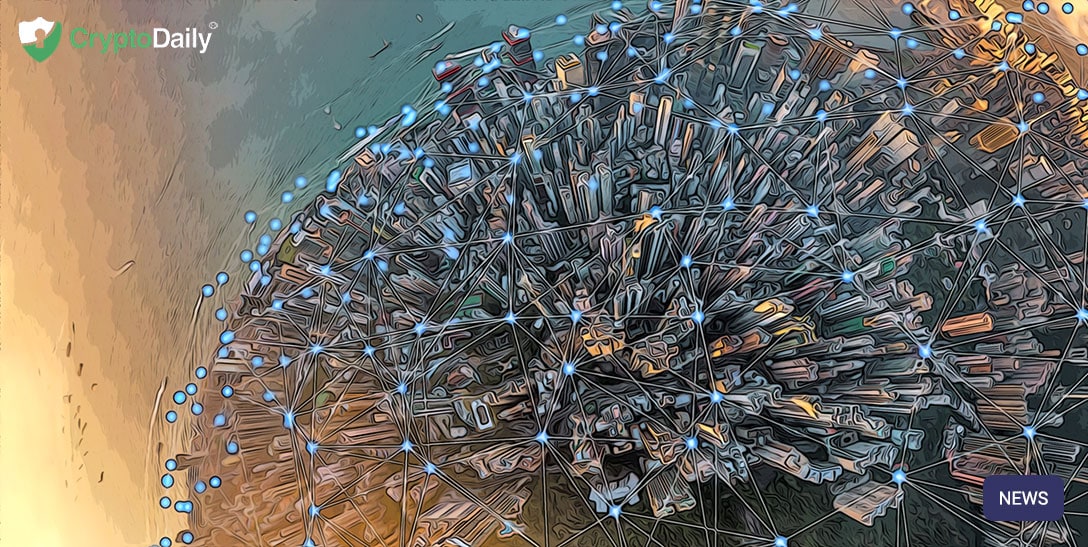Table of Contents
- The current DeFi landscape
- Anyswap from a technical standpoint
- Bringing fairness to DeFi
- A much more attractive fee structure
- Concluding thoughts
For those who have been involved in the crypto space over the last 4 years, there are certain events and trends which will immediately come to mind when reminiscing about each year. If 2017 was highlighted by ICO mania, and 2018 by a persistent bear market, then it’s safe to say that 2020 has very much been the year of the DeFi revolution.
Leading the DeFi charge have been decentralized exchanges, liquidity pools and protocols, which according to DeFi Pulse, now account for a staggering $7.88 billion in total value locked (TVL). Suffice to say, DeFi is now the number one buzzword in the space, with seemingly every project looking to make inroads here. As a result, there is now an ever increasing emphasis on providing the best user-experience, interoperability and fees on the market, meaning that the well known platforms such as Uniswap are now facing challenges from new players on the block.
Amongst these new players is the Fusion-based Anyswap, which is a decentralised cross-chain swap protocol that purports to provide a much cheaper and more interoperable token swap service than anyone else, and one with a much better user experience. So given how Uniswap currently holds $1.29 billion in locked USD, the potential for Anyswap to capture substantial market share is evident. The question that must be asked, however, is are the benefits enticing enough to motivate users to migrate away from current market leaders?
The current DeFi landscape
The notion of DeFi as a distinct subsection of the crypto industry first came to be in May 2018 at the Decentralised Finance Meetup in San Francisco. Fast forward to today and a multitude of startups are now working on creating innovative smart contract instruments, which not only allow for more decentralised and seamless peer-to-peer transactions and swaps, but ones which also encompass much better yield opportunities for users. However, it is important to note that the vast majority of DeFi platforms are currently focused on the Ethereum blockchain, and this prompted many to voice concerns regarding high blockchain fees and bottlenecks.
Only recently, Blockchair’s DeFi analytics showed that the average and median transaction fees skyrocketed to record highs of $10.33 and $5.68, respectively. Furthermore, the dependency on Ethereum has meant significant downturns in terms of network speed, and thanks to stablecoin transactions hogging the majority of bandwidth, congestion also. It is therefore imperative that DeFi dApps start to build and operate on multiple different platforms in order to take advantage of the speed and flexibility of other blockchains, and it seems like the Fusion team have risen to the occasion with their delivery of Anyswap.
Anyswap from a technical standpoint
Anyswap is an open-source and cross-chain swap protocol that provides automated pricing and liquidity systems. Built on Fusion chain and powered by Fusion’s DCRM technology (Distributed Control Rights Management), Anyswap allows swaps to occur between any coin or token from any blockchain that uses the ECDSA or EdDSA signature algorithm. In other words, users will be able to swap between BTC, ETH, XRP, USDT, LTC, FSN, ERC20 tokens and other coins in a fully decentralized and secure way.
This is even more impressive when one acknowledges how DCRM is more powerful than atomic swaps, more secure than sharded key storage schemes, and is safer and cheaper than multi-signature schemes. So what this truly interoperable solution has the potential to do is ensure that benefits from other chains (like Cosmos, for example) can be experienced by those who are currently restricted by DeFi’s heavy reliance upon Ethereum Virtual Machine; thus limiting its scope.
Therefore, Anyswap is leading the way by staying true to the original ethos of DeFi by allowing for further decentralisation to be realised, and this is further exemplified by the fact that the Anyswap team does not have control over its users’ tokens; something which is instead managed through the use of Anyswap Working Nodes (AWN).
Bringing fairness to DeFi
Alongside providing an outstanding technological solution for interoperability, Fusion have also taken it upon themselves to ensure a much fairer and inclusive governance model with their ANY token.
ANY is a democratic governance token that had no pre-sale or fundraising, and one which allows holders to vote on the listing of new coins and tokens, and also permits the election of Anyswap Working Nodes (AWN). Users are also rewarded with ANY tokens for using the different features offered by Anyswap, such as exchanging coins and tokens, adding liquidity to pools, or running Anyswap nodes.
In terms of its tokenomics, ANY has a total supply of 100 million, and has been allocated according to the following breakdowns:
- 10 million ANY allocated for the ‘Community and Ecosystem’ in order to grow Anyswap’s community.
- 5 million ANY allocated for ‘Team Initial Liquidity’.
- 85 million ANY allocated to block rewards so that they can be distributed along with Fusion network blocks.
So, whilst it’s true that part of the motivation behind issuing governance tokens is to primarily attract liquidity, an often-forgotten benefit, is how community governance also prevents fraudulent and low-quality tokens from entering into the market. Thus, giving users a gamified ‘ownership’ experience will not only ensure that the Anyswap protocol sees frequent monetisation opportunities, but also ensures that the quality of the platform continues to uphold high standards.
A much more attractive fee structure
Besides its cutting-edge tech and governance structure, Anyswap’s platform fees are also remarkably low, and much lower than those of their competitors.
For example, traders who use the Ethereum network need to pay a high gas price for each token swap transaction, and to put things into perspective, each Uniswap transaction cost more than $3.50 on average in August of this year. This is of course very problematic when one takes into account that gas fees of this magnitude are a huge barrier to users with low trading volumes, especially since gas price is in no way dependent on transaction size.
To combat this, Anyswap have sent a real shock wave through the DeFi space by providing an outstanding reduction in their rates, with each transaction cost being less than $0.0001! So given how Glassnode estimate that over 17,500 ETH (USD $6.8 million) are currently being spent on fees daily on Ethereum, the attraction of Anyswap’s fees cannot be understated, and will surely tempt many to consider swapping over; pun intended.
Concluding thoughts
Put very simply, what Anyswap are offering to the DeFi space (in terms of technology, fees and user-experience), objectively speaking, drastically overshadows the offerings of other platforms like UniSwap, and this makes one wonder - how is this possible?
As has already been seen, every metric is met with flying colours, with the only possible drawback being Anyswap’s low liquidity, which at the time of writing, is around $4.33 million. However, this number is sure to increase once people become aware of the aforementioned benefits.
Current illiquidity also provides early investors with a huge opportunity to reap the rewards the moment large numbers migrate away from the likes of Uniswap after discovering the attractive conditions of the Anyswap platform.
So, much like when DeFi first started out with the intention of bringing more peer-to-peer decentralised technologies to the masses, the Fusion team are conducting their own mini-revolution by challenging the current DeFi status-quo. One thing is for sure - this is just the beginning.
Investment Disclaimer






